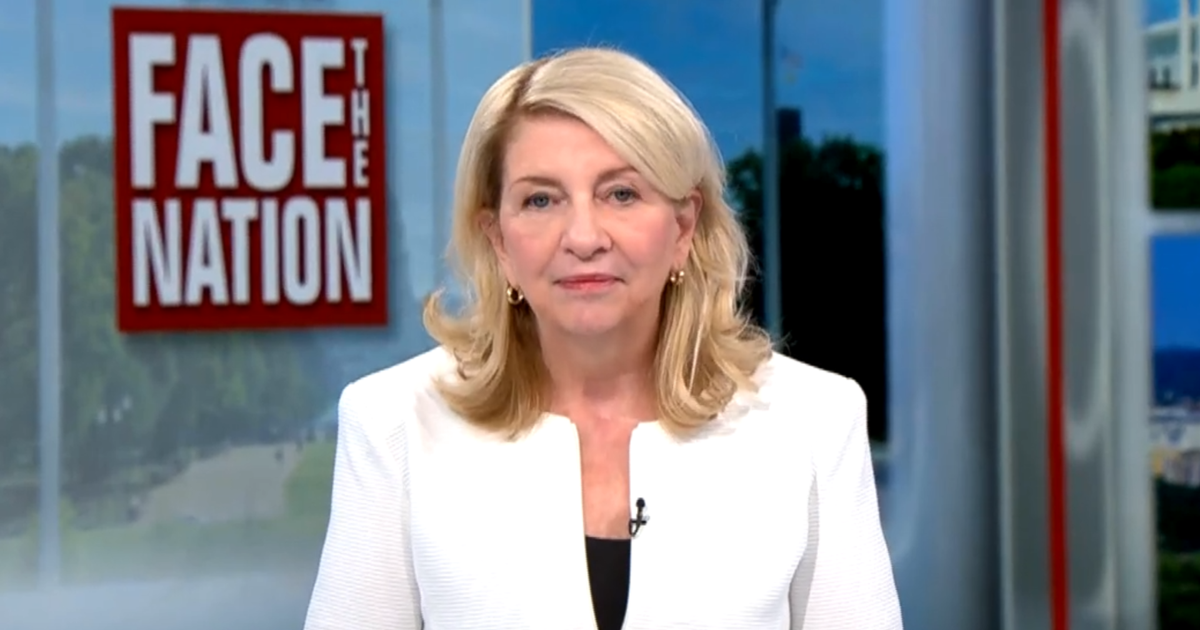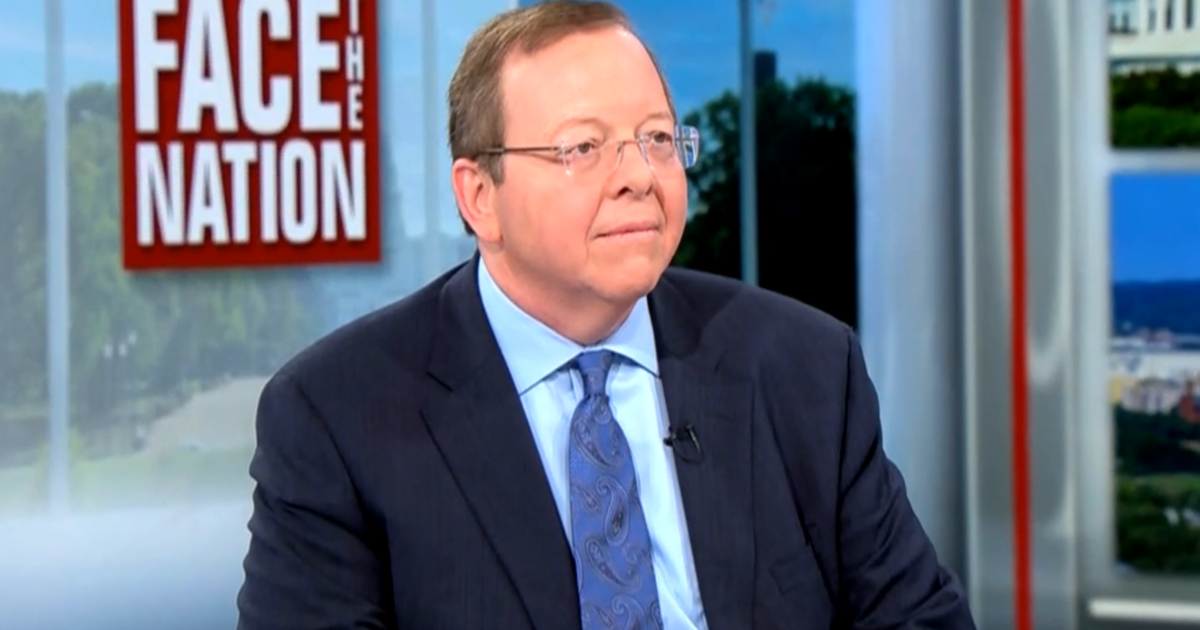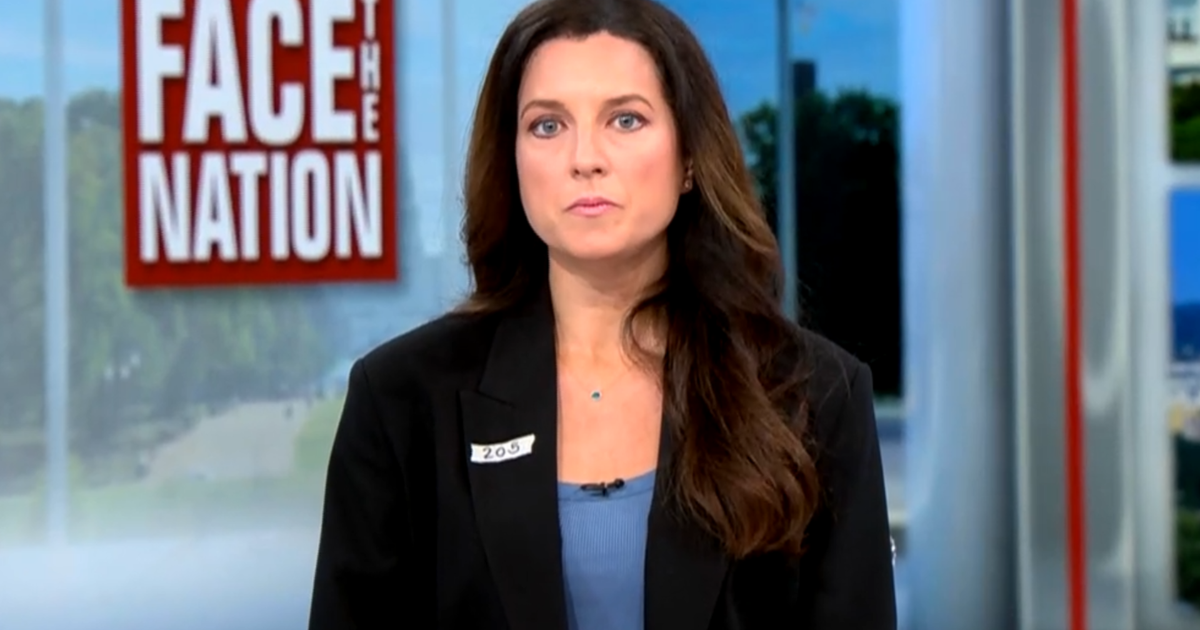Transcript: John Kirby, National Security Council spokesperson, on "Face the Nation," April 14, 2024
The following is a transcript of an interview with Adm. John Kirby, White House National Security Council coordinator for strategic communications, that aired on April 14, 2024.
MARGARET BRENNAN: And we turn now to Coordinator for Strategic Communications at the White House National Security Council, John Kirby. Good morning, and welcome back.
COORDINATOR FOR STRATEGIC COMMUNICATIONS, NATIONAL SECURITY COUNCIL, JOHN KIRBY: Thank you, Margaret, good to be with you.
MARGARET BRENNAN: Well, do you believe that Iran intended these strikes to be successful and lethal or just look like they could be?
KIRBY: No question. I'm gonna look at the size and the scale- the scope of what they fired at Israel from Iran proper. More than 300 missiles and drones, they wanted to cause damage, no question about that. But they were utterly unsuccessful in doing so.
MARGARET BRENNAN: Well, Israel clearly has the military upper hand here. But the Israeli Foreign Minister said days ago that if- that Israel will respond, if Iran attacks from its territory, as you just said, they did exactly that. So has Israel committed to the US that they will give a heads up before they take action against Iran?
KIRBY: I don't think I'm going to go into the details of the conversation that- that we had last night between the President and the Prime Minister. It was a good con- conversation really focused on the incredible success that- that Israel achieved last night with their partners. I mean, two really think- things are clear about last night: one, Israel doesn't stand alone and the United States stands with them as well as others. And two, the Israeli military does have superior capability to be able to defend itself. But as for what the- what the next steps are, I think I'll leave that to the Prime Minister and the War Cabinet to- to- to talk about
MARGARET BRENNAN: And that War Cabinet meeting is ongoing. But- But I asked, because, as you know, the US has significant presence in the region, troops in Iraq, in Syria, in Jordan--
KIRBY: --We do indeed.
MARGARET BRENNAN: And there is risk to that.
KIRBY: Absolutely.
MARGARET BRENNAN: And you said, and the Pentagon spokesperson said, that the US was not notified in advance by Israel before they carried out the April 1 attack that started this chain of events. Should they have forewarned the United States? And as a matter of principle, what is the US position on bombing what Iran says was a diplomatic facility?
KIRBY: Again, I won't talk about the details of that particular strike. To the larger point, obviously, we do have a lot of troops in Iraq and Syria going after ISIS, we have a lot of facilities elsewhere in the region, and it ships at sea. And so what happens there certainly has an effect on us. And we do want to make sure that--
MARGARET BRENNAN: --The risk level went up.
KIRBY: The conversations- we want to make sure the conversations we're having with the Israelis are as contextual as possible, so that we can make the necessary preparations for our own troops and facilities. The other message the President sent over the last few days, and certainly it was discussed last night, is we're going to take whatever steps we need to take to protect our troops, our ships, our facilities in the region going forward. And that was the case last night, before the strikes last night, and it's going to be the case today going forward.
MARGARET BRENNAN: Does the US need to be prepared to draw down a presence from any of our diplomatic facilities or reposition?
KIRBY: That's a conversation that the President and Secretary Blinken are having literally in real time. They talked about that as well yesterday. I won't speak for Secretary Blinken and the State Department. They'll make those kinds of force protection decisions as they see the threat in- in the region. But the threat changes from time to time. And- and you're always monitoring that.
MARGARET BRENNAN: But I know you don't want to go into a phone call between leaders. But the fundamental premise of what we're talking about here is the blowback for the United States. So do you have reason to believe that Prime Minister Netanyahu shares the desire not to escalate this further, which the President has made clear is his intent?
KIRBY: I would say that the Prime Minister is well aware that the President is not looking for a conflict with Iran, that the President doesn't want the tensions to escalate anymore, and that their president is doing everything, and has since the 7th of October, to try to keep this from becoming a broader regional war. I mean, one of the reasons we were able to help the Israelis knocked down so many of these missiles and drones is because the President made decisions in recent days to preposition additional ships in the eastern Mediterranean and an extra fighter squadron in the region that- that literally had a huge impact on last night--
MARGARET BRENNAN: --To deter what could have been worse.
KIRBY: To- to prevent a- a greater sense of destruction inside Israel.
MARGARET BRENNAN: Would the US participate in offensive action if there is an Israeli reprisal?
KIRBY: I'm not gonna get into hypotheticals, Margaret, as I said--
MARGARET BRENNAN: --In principle?
KIRBY: The President- the President's made it clear, we're not looking for a war with Iran. We're not looking for a broader regional conflict and everything we've been doing since the 7th has been designed to prevent that outcome.
MARGARET BRENNAN: Because the IRGC chief of staff went on TV saying they sent a message to the US via the Swiss Embassy saying if the US participates in an Israeli reprisal, US bases and personnel will not be in the security zone.
KIRBY: Yeah. Mindful- mindful of the- of the comment in the statement. Again, I'm just going back to what I said before, we're not looking for a war with Iran, not looking for a broader regional conflict. But the other thing the President has made clear, we will do what we have to do to help Israel defend itself and we did last night, and we will do everything we need to do to make sure our troops, our facilities, and our ships at sea in the region are also protected. We have interest in the region too. And obviously we're all focused on Israel and rightly so. But we have broader national security interests in the Middle East. We have a force posture that we're constantly monitoring to make sure we can meet those interests. The president takes that seriously. And that has been communicated to Iran as well.
MARGARET BRENNAN: And the Iraqi prime minister will be at the White House this week talking about--
KIRBY: --Tomorrow. Tomorrow.
MARGARET BRENNAN: That troop presence as well--
KIRBY: --Tomorrow, tomorrow. Yes, we do anticipate having a good discussion about not just the force posture, but the mission set inside Iraq and what that looks like. I think, you know, it's an advising assist mission.
MARGARET BRENNAN: Yes.
KIRBY: It's to help the Is- Iraqi Defense Forces and their operations to go after ISIS inside Iraq.
MARGARET BRENNAN: The Mossad announced this morning that Hamas rejected this latest proposal for the release of hostages, saying it proves Yahya Sinwar, the Hamas leader in Gaza, does not want a deal. Does the US share that assessment? Is the diplomacy dead? Or is this just another bump in the road?
KIRBY: We're not considering diplomacy dead. There is a- a new deal on the table that Director Burns negotiated a week or so ago in Cairo. It is a good deal. It would get dozens of the most at risk women, elderly, the wounded out, get us a six week ceasefire. So a little bit more calm and get us an opportunity to get more humanitarian assistance in. The- the Hamas leaders need to take that deal. And we're not considering this dead at this point.
MARGARET BRENNAN: Okay. So that Mossad rejection is not closing the door?
KIRBY: We're not considering it dead- a dead letter.
MARGARET BRENNAN: Okay. Last Sunday, when you were here, you told us that the US expected to have talks with Israel, perhaps as soon as this week, about their plans to go into southern Gaza, into Rafah. When is that happening? Do we have any further details?
KIRBY: We think that discussion- first of all, there's been some staff technical level talks, even since you and I last spoke. We expect that larger conversation with our Israeli counterparts to happen in coming days, hopefully this week.
MARGARET BRENNAN: Hopefully this week.
KIRBY: Hopefully this week.
MARGARET BRENNAN: John Kirby, thank you very much.
KIRBY: Thank you.



